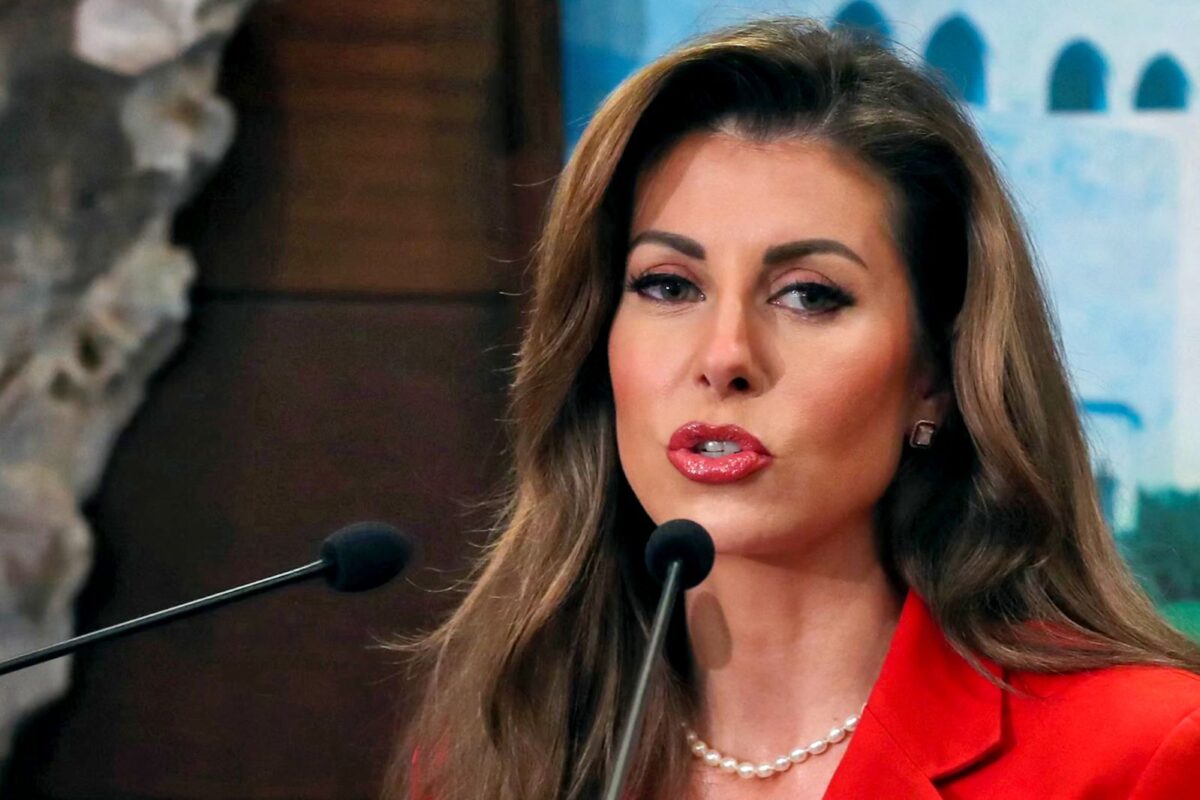
Anyone following the conversations among the Lebanese public and media might be led to believe—if only momentarily—that the President of the United States or other global decision-makers wake each day with Lebanon’s political and economic affairs at the top of their agendas. As if Donald Trump and his administration were obsessed with tracking Lebanon’s political developments, institutional structures, and tangled alleyways.
The news of the potential dismissal of Morgan Ortagus, Deputy US Envoy to the Middle East, highlights this odd phenomenon. The Lebanese, across political and cultural lines and with a deeply ingrained—if somewhat delusional—belief in their ethnic and geographic uniqueness, responded to Ortagus’s anticipated departure with a superficial, even childish, attitude.
Of course, her dismissal was not due to her style—described by some as abrasive or undiplomatic—but because the US administration, unlike many in Lebanon, approaches foreign policy with perspective and clear prioritization. This administration consistently reminds the Lebanese of their dire situation, a crisis largely of their own making. Recovery begins with owning up to past failures, defending national sovereignty, disarming Hezbollah and its affiliates, and enacting critical reforms to prevent Lebanon’s economy from becoming a proxy tool for the Iranian Revolutionary Guard.
Ortagus’s expected exit prompted reactions that fell along Lebanon’s all-too-familiar political lines. The “sovereignty camp,” yearning to end the Iranian stranglehold, saw her departure as a loss. Meanwhile, the “resistance” axis interpreted it as a win for their so-called “liberation” project—a project more invested in organized crime and drug trafficking than in any real struggle “to throw the Jews into the sea.” Both camps, however, missed a fundamental truth: US policy—particularly under Trump’s erratic leadership—largely sidelines Lebanon. The replacement of an envoy or adviser does not represent a seismic shift in Washington’s foreign policy doctrine.
The Lebanese response—whether joy or sorrow—resembled the smug satisfaction of a lazy student upon the firing of a strict teacher who insisted on academic integrity and effort as the only path to success. Ortagus’s counsel was not born of affection for the Lebanese people, but from a US strategic imperative: to stabilize Lebanon by empowering its state institutions and warning its citizens that serving as human shields for Iran-backed militias in regional conflicts would only lead to further devastation.
The Lebanese misunderstanding of how the US government and White House function gave rise to bizarre narratives about the internal workings of the Trump administration. Speculation ran rampant about who would take over the “Lebanon file,” including veteran diplomat Joel Rayburn—a claim that is inaccurate. Rayburn, a Levant affairs expert, is expected to return to the State Department pending congressional approval, but envoys report directly to the White House and the President. Regardless of who inherits the Lebanon portfolio, they will likely understand that Lebanon’s ruling class has long preferred the company of celebrities, plastic surgeons, and pop stars to that of serious reformers willing to rebuild a functioning state.
Ortagus’s departure also coincided with the 20th anniversary of the assassination of journalist and historian Samir Kassir—murdered by the Assad regime and its ally Hezbollah. Yet, on this solemn occasion, many merely posted photos and tributes to his ideas, failing to tie his legacy to any real resistance against the same forces that have weaponized the Palestinian cause and silenced voices like Kassir’s, Lokman Slim’s, George Hawi’s—and even blew up the Beirut port.
This moment—the anniversary of Beirut’s historian and the dismissal of an American envoy—should serve as a reminder to the Lebanese: salvation will not come from outside envoys unless their advice is met with attentive ears and a genuine will to act. These ideas remain tragically unripe in a nation where deception and evasion have become a governing philosophy.
This article appeared original in Nidaa al-Watan
Makram Rabah is the managing editor at Now Lebanon and an Assistant Professor at the American University of Beirut, Department of History. His book Conflict on Mount Lebanon: The Druze, the Maronites and Collective Memory (Edinburgh University Press) covers collective identities and the Lebanese Civil War. He tweets at @makramrabah







